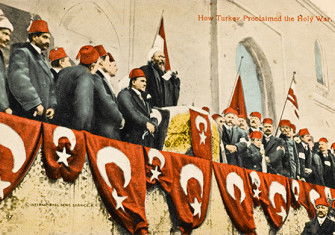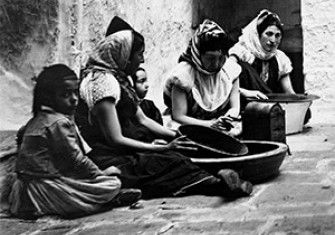Muslims in Hitler's War
The Nazis believed that Islamic forces would prove crucial wartime allies. But, as David Motadel shows, the Muslim world was unwilling to be swayed by the Third Reich's advances.
 Tunis, December 19th, 1942. It was the day of Eid al-Adha, the Islamic feast of sacrifice. The retreat of Rommel's army had turned the city into a massive military camp. In the late afternoon, a German motorcade of four large cars drove at a slow, solemn pace along Tunis' main road, the Avenue de Paris, leaving the capital in the direction of the coastal town of Hamman Lif.
Tunis, December 19th, 1942. It was the day of Eid al-Adha, the Islamic feast of sacrifice. The retreat of Rommel's army had turned the city into a massive military camp. In the late afternoon, a German motorcade of four large cars drove at a slow, solemn pace along Tunis' main road, the Avenue de Paris, leaving the capital in the direction of the coastal town of Hamman Lif.







